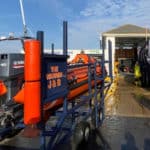The upcoming Policy and Scrutiny Committee for Children’s Services, Education and Skills – Thursday, which takes place on 27th February 2025 will consider the new education performance report that highlights both progress and ongoing challenges in schools across the Island.
The paper reveals that while Early Years Foundation Stage (EYFS) and phonics results show improvement, attainment at Key Stage 2 (KS2) and Key Stage 4 (KS4) remains below national standards, particularly for disadvantaged and Special Educational Needs (SEN) pupils.
Early Years and phonics improvements
The Scrutiny Report shows a stable foundation at the Early Years Foundation Stage (EYFS), with 68 per cent of pupils achieving a Good Level of Development (GLD), slightly above the national standard of 67.7 per cent.
Mathematics (79.6 per cent) and Communication and Language (82.9 per cent) exceeded national averages, suggesting that early number and language development initiatives are having a positive effect.
Physical Development, however, was slightly below the national average at 84.1 per cent, indicating the need for more structured activities to enhance motor skills.
Disadvantaged pupils
Disadvantaged pupils on the Isle of Wight performed above the national average for disadvantaged groups, but the attainment gap between them and their peers remains.
Targeted support is required to close this gap as these children move into Year 1.
Improvement in Phonics
Phonics screening results in Year 1 improved to 78.3 per cent marking a 3.5 per cent increase from 2023. However, this remains below the national standard of 80 per cent.
Disadvantaged pupils also showed improvement, rising from 63.3 per cent in 2023 to 66.2 per cent in 2024. While this remains below the national standard of 68%, the upward trend is encouraging.
SEN pupils, however, saw a slight decline from 40.4 per cent to 39.5 per cent, highlighting the need for additional phonics support.
Key Stage 2 struggles
KS2 results reveal significant challenges, with only 34.8 per cent of disadvantaged pupils achieving the expected standard in Reading, Writing, and Mathematics (RWM), compared to 46 per cent nationally.
Overall, the percentage of pupils achieving the expected standard in RWM was 10.1 per cent below the national average.
The subject-specific gaps to national standards were also concerning: Reading (-5.4 per cent), Mathematics (-9.1 per cent), and Writing (-5.3 per cent).
KS4 Attainment below national standards
Attainment 8 scores on the Isle of Wight were 4.7 points below the national average, reflecting weaker overall performance across subjects.
Progress 8 scores (-0.26) were also lower than national averages, suggesting weaker academic progress from KS2 to KS4.
English and Maths Basics scores at both 4+ (59 per cent) and 5+ (39.6 per cent) remained below national benchmarks.
Disadvantaged pupils faced greater challenges, with Attainment 8 scores (-4.9) and Progress 8 scores (-0.76) significantly below national averages for disadvantaged students.
EBacc entry rates were 40 per cent, close to the national average, but achievement rates lagged behind at 18.3 per cent for grade 4+ and 11.4% for grade 5+.
For disadvantaged pupils, EBacc entry stood at just 24.8 per cent, with achievement rates at 3.9 per cent (4+) and 2.9 per cent (5+), significantly below national figures.
Post-16 Education concerns
The report highlights that A-Level performance on the Isle of Wight remains below national standards.
Some schools achieved results close to or above the national standard, demonstrating excellence in certain areas, but overall performance suggests a need for targeted intervention in underperforming subjects.
Applied General qualifications were slightly below national standards, while vocational results remained stable but varied widely between providers.
The report also raised concerns over the low uptake of T-Level courses, limiting students’ access to technical career pathways.
Efforts are needed to promote T-Levels more effectively and establish stronger industry partnerships to provide work placements.
New School Improvement Team
Following the conclusion of the Isle of Wight council’s arrangements with Hampshire County Council (HCC), a new School Improvement Team will be in place from April 2025.
The council says it continues to implement targeted interventions aimed at supporting underperforming groups, particularly in English and Mathematics at KS2 and attainment at KS4.
Challenges remain in closing the attainment gap for disadvantaged and SEN pupils and ensuring smooth transitions from primary to secondary and post-16 education.
With the introduction of the new School Improvement Team, the Isle of Wight council aims to address these challenges and improve educational outcomes across the Island.





